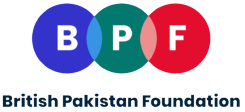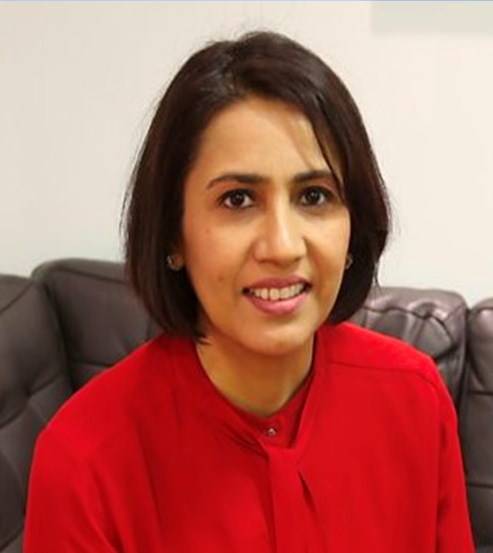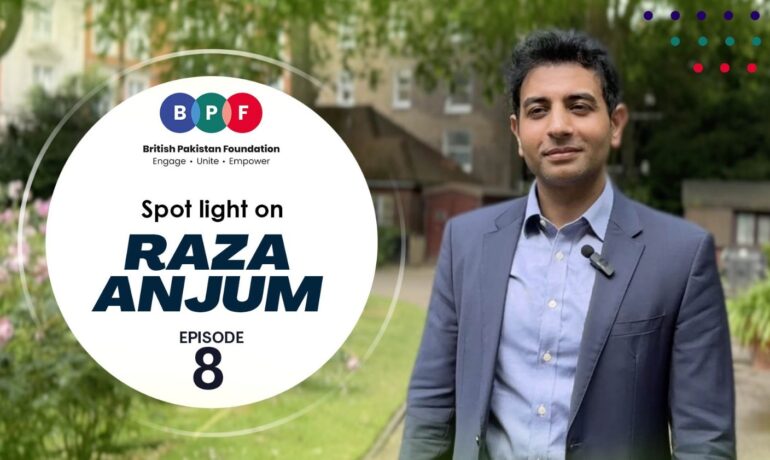Spotlight on Shaista Gohir
BPF caught up with ShaistaGohir, a leading women’s rights activist and Chair of Muslim Women’s Network UK (MWNUK), a national charity. Prior to joining the board in 2011, Shaista began volunteering for MWNUK in 2005 when it was an informal group and became the Executive Director in 2007 transforming the group into a national Muslim women’s organisation. She set up Muslim Women’s Network National Helpline in 2015 and conducted groundbreaking research into the sexual exploitation of Asian girls in 2013, authoring the report, “Unheard Voices”. This has been followed by reports on female genital mutilation and Muslim marriage and divorce in Britain addressing the problems with Shariah Councils. She regularly contributes to mainstream, international and niche broadcast and print media with comments and written articles. These have included: Times, Guardian, Independent, Huffington, BBC, Sky News, Al Jazeera etc. In recognition of her work, she was awarded the OBE honour in the Queen’s birthday honours list in 2016 and the MBE in 2008.
As Chair of the Muslim Women’s Network UK, what issues do you think are faced by women in modern day Britain and how can these be resolved?
No country in the world can claim to be a truly equal society even where there are progressive policies. Women need to be empowered socially, politically and economically. One of the biggest issues is the level of violence against women and girls. Although we need to continue raising awareness of the support available and the protection that the law gives, it does not solve the underlying problem of male attitudes towards women. This needs to be challenged starting from an early age and men need to step up to the plate and get involved. It should not be left up to women to do this alone. Economic power is another major solution to many of the problems faced by women. For example, most women will not leave abusive situations because they are not financially independent.
Following your publication of “Unheard Voices” on The Sexual Exploitation of Asian Girls and Young Women, what can the British Pakistani community do to tackle such abuse in the future?
Since the publication of the ground-breaking report, Muslim Women’s Network UK has partnered with a number of community groups to raise awareness of this issue. Although perpetrators come from every community, as do victims, we cannot ignore the fact that disproportionate number of Pakistani men are involved in grooming gangs. People in the community need to challenge misogyny. While misogyny exists in every community, we must remember that Pakistan consistently ranks in the top 5 worst countries in the world to be a woman – are these attitudes also being transferred to the UK? People in the community are also not reporting these criminals. There will always be someone who is aware or suspects what is going on but not reporting concerns. Also when these cases get to court, so called respected members of the community e.g. councillors need to stop giving character references to men accused of such horrendous crimes.
The Muslim Women’s Network has introduced a Helpline, to provide advice and support; can you tell us more about this?
The Muslim Women’s Network Helpline (www.mwnhelpline.co.uk) was launched in January 2015 in response to the need of setting up a national, culturally sensitive service where women and girls could talk about their problems and ask for help without feeling judged on any issue as other helplines (including mainstream ones tend to be issue specific). We receive calls on up to 39 different issues including domestic violence, sexual abuse, shariah divorce, mental health, homelessness, honour based violence, forced marriage, faith and spirituality (where women seek an alternative to conservative interpretations to Islam). We are now in our third year of operation and the demand for our service has led to us increasing our hours to operate 5 days / week. The helpline is open to anyone of any faith background and also men. Although the vast majority of women we have helped are Muslim women (half of whom are of British Pakistani background), we have also helped men and women of other faiths or no faith backgrounds. Due to the demand from our clients, we have also now set up a faith based, as well as, a culturally sensitive counselling service.
Having won the Asian Woman of Achievement Award in the Social and Humanitarian Category, what advice would you give to others wishing to advance in this sector?
Anyone passionate about helping others should volunteer — that is what I did. I know a number of women who started off volunteering for charities and ended up getting employed by the same organisation or the charitable sector and getting paid for what they love doing. As a trustee, I choose to go beyond my role by dedicating most of my week to my voluntary work. So becoming a board member of a charity is another way of getting involved which may only require 4 hours / month. We always looking for board members and next year may need expertise from the finance, business and communications sector.
What can British Pakistanis do to improve the human rights of minority women?
We need to change the attitudes of the spouses that are coming into this country through marriages. They end up reinforcing cultural attitudes in the British diaspora community. Hence the cycle of forced marriages continues – spouses that arrived 20-30 years ago now want to support British citizenship of their nephews and nieces through marriages with their own children. We need to break this cycle. Such issues including the impact on the lives of women need to be highlighted more on Pakistani satellite TV channels.
What does the future present for British Pakistani women in the UK?
Unfortunately culture and patriarchal interpretations of faith have been used to limit a woman’s autonomy in the British Pakistani community. As more women become knowledgeable on the egalitarian interpretations of their faith, it will give them more confidence to critically analyse and challenge what they have been told in relation to what they can and cannot do. British Pakistani women are from across the religious spectrum with diverse lifestyle choices. I therefore want us to move away from the stereotype of what a Muslim woman looks like and embrace the diversity of British Pakistani women.




